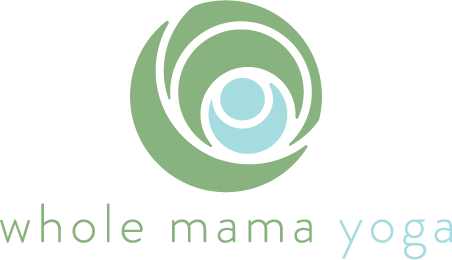The Sweet Exhaustion
The Sweet Exhaustion
Why does motherhood make me so GD tired?
There’s a great irony of motherhood and parenthood. It starts in pregnancy and it continues until (well, from my experience until at least age 7, but I suspect much, much longer than that.) The irony is that although I am less active (less fit, ahem), and my life offers more chances to be sedentary (all those early months sitting and nursing, rocking, nurturing baby, all the days now of watching soccer and gymnastics), I am always tired. Despite all that sitting and ostensible restfulness, I am wandering through life in need of deep, deliberate rest.
I see this echoed in my prenatal and postpartum classes: the parents and moms who join in are still, silent, heavy with exhaustion during savasana. There is far less restless moving than in a general population yoga class. Growing a baby, birthing a baby, parenting a baby and then toddler and then child – this is exhausting work. At first, the exhaustion is mostly physical: I recall how tired I would get during pregnancy, even one time deciding to crawl from the living room couch to our bedroom because standing up and walking seemed like an insurmountable amount of effort. (My partner: “babe, what on earth are you doing?”)
Here's me and my daughter: me pretending to rest; her, channeling all my inner vigilance.
And as any new mom or parent will admit, nothing can prepare you for the endless, mind-numbing middle-of-the-night feeds, diaper changes, and—worst of all—phantom cries that wake you even when the baby is soundly asleep. And then the magical happens: the baby learns to sleep through the night… and then they are a toddler (and you’re running after them, constantly cleaning messes, cooking so, so much mac and cheese) and then finally they’re potty-trained (holy cow was THAT a lot of work) but rather than rest on your laurels, basking in your child’s new abilities and independence, the exhaustion turns existential, spiritual, and deeply psychological. Is this the right way to parent? Did I do irreparable damage when I said “no” to that popsicle today? Am I really a mean mommy? These are the questions (and deeper, harder ones) that keep us awake at night, aren’t they?
I know that not all of us are married, or married to men, but those of you who are partnered with a guy might attest that your male partners just don’t carry the work of the emotional labor of worrying, worrying, worrying about the right way to parent. My husband seems blissfully unaware that we could be seriously messing this all up, if not for my dedication to parenting podcasts, blogs, and books. If not for my constant, always-on, always-keyed in vigilance. It’s been there from day one, when my daughter was a cluster of cells, a soft heartbeat, a possibility. I’ve felt deep-down that it’s all on me whether she survives, thrives, grows, and spreads her wings happily. Like, no kidding that I’m tired. That we’re all tired. That motherhood and parenthood are endeavors that drain us physically, mentally, spiritually.
Of course, all of this is a labor of the deepest, most sticky, indescribable love. And that love is the fuel for the engine. In my tiredest moments, I’m still waking when my daughter has a bad dream to cuddle and soothe her. I’m going to show up for her, do my best, own my mistakes, keep on keeping on because love propels me forward on this mission of motherhood, of parenthood. Sometimes the love is so overwhelming and all-encompassing that I don’t even notice the exhaustion. It’s just a part of me, now.
Here's where I tell you why yoga helps, of course.
Yoga can give you a chance to rest, to trust that another person is at the wheel for just a little while. Yoga in a space with others shrinks your world to just the yoga studio for an hour or so. It offers respite from the exhaustion, just for a little while. Remember that quiet savasana I mentioned?
Often when I teach prenatal folks or new moms and parents with little ones at home, I say
“There’s no one to listen for. There’s nothing you have to do or plan for or organize or prepare for. You can drop into this stillness and trust that I’m here to be on now while you allow your body to breathe and be.”
And I think, sometimes, that’s exactly what happens.

